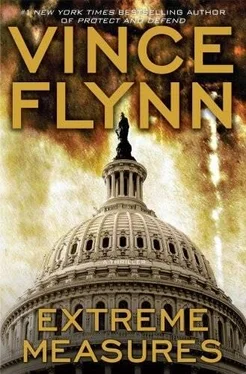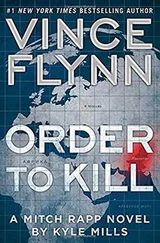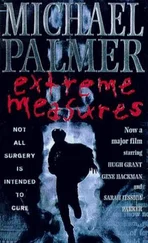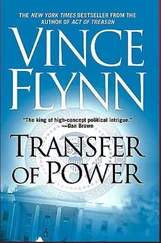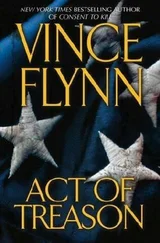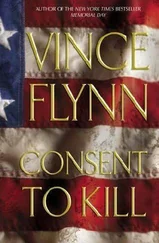“He has no proof of that, sir. That’s what these spooks do. They run around chasing shadows. Crying wolf.”
“That doesn’t mean he’s not right.”
Leland sighed in exasperation. “That is not our job to decide.”
“So you think I should lock him up.”
“Yes, sir. It’s the only responsible thing for you to do.”
“And then what?”
“It will get kicked up the chain of command, and they will deal with it.”
Garrison thought long and hard about it. He couldn’t shake the feeling that he was making a mistake, but he saw no other way. “Fine,” he said with no enthusiasm, “place him under arrest and notify Centcom.”
“Yes, sir.” Leland was beaming with satisfaction as he snapped off a salute.
“And, Captain, I want this kept quiet. No gossip. For now it stays between the two of us and our security detail in the other room. The Pentagon and the president might have an entirely different take on this than you do.”
“I doubt it, sir.” Leland turned to go arrest Rapp.
“One other thing, Captain.”
Leland stopped and looked back at his CO.
“Don’t look so damn pleased with yourself. Before this is all over, I have a bad feeling we’re both going to wish you had never gotten me out of bed.”
WASHINGTON, D.C.
THERE hadn’t been many dates and no real relationships to speak of. The ones with any sense simply stayed away and the ones who pursued her made her nervous for the simple fact that they should have had more sense. Then there was the very real fear that she would be set up by a foreign intelligence service. It had been done before, using a woman’s heart, or in a man’s case something else, to put them in a compromising situation. So there were background checks, surveillance by Langley’s counterespionage gang and probably the FBI as well. She questioned none of it. To do so would have been reckless.
Irene Kennedy had resigned herself to the simple fact that she would probably never find true love and almost certainly never remarry. The first go-around had gone badly, as they pretty much always do when referred to in the past tense. She rarely looked back on it with any deep regret. It had started out well enough. He was interesting, handsome, and very intelligent. Her mistake had been underestimating his relationship with his mother. The woman treated her son as if he were still eight years old. He was a mama’s boy who thought only of himself. Looking at it after the fact, Kennedy could see she enabled his behavior. She was a pleaser. She loved him and wanted to make him happy. It was three years into their marriage when she gave birth to their son Thomas that things took a turn for the worse. When confronted with the hard truth that her husband wouldn’t change a diaper, handle a feeding, or get up with Thomas in the middle of the night, it was hard to deny the simple fact that the man was a selfish prick.
It would have been another story if he’d been the breadwinner and she’d been a stay-at-home mom, but it was the opposite. He was a college professor who acted as if he was God’s gift to the intellectual elite of the world. Kennedy soon grew tired of the inequities of the partnership. The tipping point came one Saturday afternoon when she found herself mowing the lawn with young Thomas sleeping in a baby backpack, while the professor was off working on his dissertation. It took nearly two years for the divorce to be finalized, but it was then that she knew it was over, when she knew she no longer loved the man.
Still, she never regretted the marriage, for the simple fact that it had given her a son whom she adored. Kennedy had made it a priority to make sure her son did not turn out like his father. The only real challenge came every summer when Thomas would spend a month at his father’s family summer retreat on Nantucket. It was really the only time he spent with his father since he was now teaching in France. There were lots of tennis and golf and sailing. He never changed, though. He was a good kid who got good grades and stayed out of trouble. Her mother helped a lot, and then there was Rapp.
Kennedy reached for her glass of wine and looked through the open French doors of the semi-private room. Her date was late. As she took a sip of the pinot noir, she thought of the influence Rapp held over her son. He was a complex man… no, that’s not right, she thought to herself. He’s probably the least complex man I know. Rapp’s line of work was complicated, rare and very dangerous, but to Kennedy he was perhaps the most transparent man she had ever known. There were plenty of people at Langley who were tacticians; those who dreamt up grand, complex plans that would weaken or destroy the enemy, plans that would harvest intelligence and give them an advantage over their enemies. Invariably, Rapp would pick these plans apart. As someone who had spent almost his entire career in the field, he was painfully aware that there was a direct relationship between the complexity of a plan and its chances for failure.
Rapp preferred the simple, direct approach, which usually involved firing a bullet into the back of someone’s head. That was the stark truth, and Kennedy spent a fair amount of time trying not to think about it. Her mother, though, had expressed her concerns. When Rapp’s wife was killed several years ago, Kennedy’s mother had come to her and stated in unequivocal terms that she thought it extremely reckless that her daughter allowed her grandson to spend so much time in the company of a CIA assassin. Kennedy hated the word. Hated the idea that someone who had sacrificed so much could be dismissed and tarnished by a simple word. Put Rapp in a uniform and give him a rank, and he would be a hero. They’d have pinned so many medals on his chest, he’d tip over. He wasn’t part of the military, though, so certain people looked down on him, even her own mother.
Kennedy couldn’t blame her. Her mother did not understand how anyone could do what he did for a living. Kennedy smiled as she thought of how her mother would react if she knew the whole story – if she were given access to Rapp’s file. Even worse, how she would react if she read her own daughter’s file. At least with men like Rapp and Nash the anthropological evidence was in plain sight. One look at them and it was obvious that they were hunters. Her own daughter, on the other hand, had not a hint of predacity in her entire appearance or demeanor. She was the epitome of high-powered Washington class. Her clothes were always stylish but never over-the-top. She showed just enough skin to retain her femininity and never so much as to be thought a slut. Her smooth, shoulder-length hair was the perfect accent to her narrow face and button nose.
Never was there a hint that beneath the disarming, pleasant smile lurked a woman whose patience was gone. A woman who now, on an almost weekly basis, gave men like Rapp and Nash the approval to break laws, to lie to congressmen and senators, to kidnap and torture, and, yes, to kill. It was never cavalier or done for the perverse pleasure of doing it simply because she could. The decisions were made with great care and consideration, but nonetheless they were made, and Kennedy had to live with them, had to live with the lies. She knew Rapp could handle it, but she was increasingly worried about Nash. Where Rapp kept to himself, especially since the murder of his wife, Nash was forced to confront the lie. Married, with four kids, he crossed over on a daily basis, back and forth from suburbia to the black-ops world of counterterrorism – soccer and lacrosse games followed by late-night interrogations and the occasional liquidation.
They’d come up with plenty of words to help them cope with their less-than-noble deeds; detainee , as opposed to prisoner, opened up the door for extreme interrogations, which, of course, had a much nicer ring than torture . A suspect underwent rendition , as opposed to simply being kidnapped . All of the political speak drove Rapp nuts. He blamed it all on the lawyers, and he was probably right. The truth was they were in a dirty business that was populated by some less-than-reputable people. Rapp liked to remind everyone, “We’re not cops. We’re not soldiers. We’re spies, and spies do nasty shit to nasty people.”
Читать дальше
